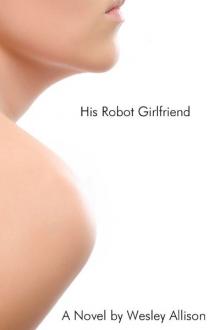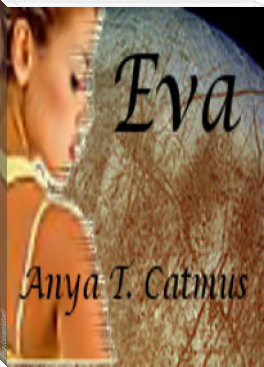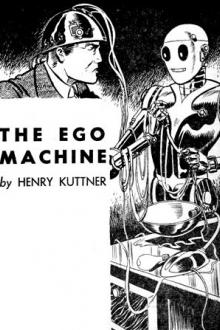The Boy Who Fell from the Sky - Jule Owen (english love story books TXT) 📗

- Author: Jule Owen
- Performer: -
Book online «The Boy Who Fell from the Sky - Jule Owen (english love story books TXT) 📗». Author Jule Owen
“Mum’s a scientist working for a corporate. So was Dad.”
The word ‘Dad’ sticks in his throat. Two years on, and it’s still painful to even mention his father. How long will I feel like this?
“I know, Mat.”
He notes that she doesn’t say, “And look where it got him,” but he knows it’s what she’s thinking. It’s what he’s thinking himself.
“Mum is doing her best.”
“I know that too, Mat.”
“I have to go and log on at school; otherwise, I’ll be registered absent for the day.”
“Okay. Speak soon.”
He ends the call. Leibniz tidies the cupboard Mathew disordered when he searched for his breakfast.
3 The Naming of Things
The house is full of ghosts. Every corner of it conjures a memory of his father. For the last two years, Mathew has blocked these phantoms, walked past them and refused to see them. Now they are creeping back in as he’s able to bear thinking about them for the first time.
As he walks into the Darkroom to meet his supervisor, he remembers how his father persuaded his mother to relinquish her dining room so the Darkroom could be built. He can still clearly hear his father’s voice, the particular timbre of it. His father spoke excellent English, with only a hint of a Danish accent. In his mind, Mathew sees him standing in the doorway of the room saying, “This is the only place we can put it.”
“Where are we going to eat?” his mother had asked.
Soren had gestured impatiently. Surrendering the dining room was a minor inconvenience to him. “Why can’t we eat in the kitchen?”
“What happens when we have people over? There’s not enough room.”
“People will come to use the holovision.”
“You can’t be serious. I’ll never get any of my friends to come over again.”
Mathew remembers his father glancing at him, a raised eyebrow and a slight smile on his face. He remembers his mother hitting his father with the towel she had in her hands. The sound of the snap of it.
“Oh, they’ll come! People chat in interactive games. It’s good for Mathew. The whole world is getting them. It will help with his studies.”
“Oh no . . . Don’t put this on Mathew. You want the holovision for yourself.”
Mathew helped his father carry the dining room furniture to the driverless van courier that had come to collect it after it had been sold via online auction. They spent a weekend painting the walls black, listening to his father’s favourite classical channel on full blast, driving his mother from the house. There’s still a stain on the sanded wood floor where Mathew knocked a can of paint over, and he and his father scrubbed and scrubbed, trying to remove it from the woodwork, both dreading what Hoshi would say when she got home. In the event, she didn’t mention it, a sign of how angry she was over the Darkroom project.
Now the room sits in the house as a constant reminder of Soren to Hoshi and Mathew, one of the last things he did. As with all reminders of his father, Mathew is never sure if he wants it there or not.
Three years ago, the darkroom was state-of-the-art, but there are much better setups now. In fact, it’s just an ordinary room, painted black and fitted with six seats, because in those days people still came around. There’s an empty space at the front of the room for dynamic interaction. Hologames and holofilms are playable anywhere as part of augmented reality, but the quality of the images is often affected by material objects, so it’s best to have a blank canvas to project them onto.
Plus, although people are now used to others interacting with invisible augmented reality objects in public, in much the same way people in the late twentieth century became accustomed to people apparently talking to themselves in the street when mobile phones were introduced, it isn’t practical for people to run around in the street in large numbers playing war games and firing invisible weapons. After several years of chaos created by this kind of activity, it’s now a minor criminal offence.
As Mathew enters the room, the system is immediately alerted to his presence and greets him. Finding his usual chair, he pulls on a skullcap, a plain plastic dome crammed with electrodes with replaceable covers. The cover on his skullcap is a fake wool cap, a bit like a kippah, the latest fashion. It’s only a few weeks old. His mother bought it for him out of the blue, and he was touched and surprised. These days she is so distracted by her work.
He tells the Darkroom system to set his status to “available” and awaits an incoming call. Within seconds he is mentally transported onto a patio and into a deck chair. It is sunny, and he’s suddenly warmer, as the computerised air conditioning in the Darkroom adjusts to the instructions of the program. There’s a glass of lemonade in front of him on a table. Reaching for it, it occurs to him for one mentally destabilising second that Leibniz must have been instructed by the system to provide a drink. In the deck chair opposite sits his personal tutor, Professor Nan Absolem. She’s wearing khaki linen trousers, a white shirt, sandals, sunglasses, and a wide-brimmed sun hat, her skullcap hidden underneath. All his other tutors run their sessions in reconstructions of their offices, sitting behind a desk.
“Hello, Mathew,” she says, turning to him and smiling, holding a glass with an umbrella in it. “Cheers!”
There is a clink, and Mathew feels his glass collide with hers. He has to stop himself from resisting the created reality, from always deconstructing the haptics in his head. He needs to give in to it.
“Isn’t this nice?” she says. “Better than a stuffy old office?”
“Yes, it is.”
They are looking at a view of fields, a lake, and trees on a summer’s day. It’s a template in the system Mathew recognises but doesn’t often use. People his own age always prefer dystopias and bizarre exoplanet landscapes, with strange rocky surfaces and multiple moons or suns. Mathew’s dragons fly into the landscape, exploring. Nan turns her head, watching them, smiling.
“What were you working on this morning?”
“The history of artificial intelligence,” he says.
“Interesting?”
“Yes. Very.”
“Not distracted or upset by the All-Day Curfew? Not missing school?”
“Not especially. It’s perfectly possible to do everything I do at school, at home.” As soon as he’s spoken, he regrets it. He knows what’s coming.
“Yes, but you can’t learn how to work with others at home on your own. You can’t build friendships.” She raises an eyebrow and smiles. Her eyes are shaded, her face unreadable.
“Ah.”
“Yes. ‘Ah’ . . . On that note, the school thinks it’s important to try to get you together with other students twice a month while the crisis continues. We’ve managed to arrange for transport on Thursday. You’ll use the day for work on a robotics project. I’ll send details through to you, but it will essentially be a group challenge to build a working robot with limited resources and time. You will be assessed on your collaboration skills. It will count towards credits.”
Mathew sighs.
“What’s wrong?”
“Do you honestly want me to say?”
“Yes.”
“I will score badly in this exercise, and it will bring down my average.”
“That’s your decision, surely?”
“But it’s not up to me. I know who will be in the robotics group. They don’t like me, and they won’t allow me to collaborate.”
“This exercise has remote, silent observers. They’ll notice if the others are obstructive and exclude you. They will penalise the others for this, not you.”
“Sure.”
“They will, Mathew.”
“I’d rather be getting on with other work. This won’t teach me anything.”
“You have to learn how to work with others, even if you don’t get on with them personally.”
“Right.”
A pair of ducks take off from the lake, and they quack their trajectory into the sky. Mathew wonders if Nan has triggered it as a distraction. He has noticed she often does something like this when he gets emotional. The dragons take off after the ducks. He and Nan both watch.
“I love your dragons, Mathew. Well done. You’ve done an incredible job, engineering them to fly. You should find names for the project. My old professor of AI used to teach that when you give something a name, you gain power over it. He called it the Rumpelstiltskin Principle.”
Mathew says, “I created the female first. She's called Yinglong. I think I may call it Project Yinglong.”
“It’s a good name. Does it mean anything?”
“Yinglong means responsive dragon.”
“How appropriate.”
“It was in a book my grandmother gave me. I used the pictures in it to design the way the dragons look. Yinglong is a winged dragon associated with rain and floods.”
“Even better. So how is Project Yinglong coming along?”
“I took them for their first walk yesterday.”
“Great. What happened?”
“Things were fine at first, but I realised there’s a bit of a flaw in the way I was planning the project.”
“How so?”
“I did a 3D scan of our house to create a virtual world environment for them. I used APIs for my Lenz, ePin, and skullcap, placed cheap holographic cameras around the house, and connected them all to the Gencode software.
“The dragons see virtual versions of us, scanned in real time in their world. They are holographic versions of themselves walking around in our world. I leverage the virtual reality layer in the Lenz software interface for this, so we’re able to see them. In their world we’re as solid as everything else. In our world they’re not material. They can’t interact with actual things. This creates a dissonance. The point of the project is they learn from experience. But if they don’t interact with our environment, they won’t learn the physics of our world. Today one of the dragons was clawing at some papers on the floor, and, of course, the papers didn’t move. I could reprogram their environment, so things in their world do move when they interact with them in ours, but then they won’t be synched with our world. It’s incredibly obvious that this would happen, but I was so absorbed in creating the dragons as holograms, I didn’t think of it. I want the dragons to be learning AIs living in my world.”
“Does it really matter if there’s a bit of dissonance?”
“I don’t know.”
Nan thinks for a moment, taking another sip of her drink. “I have a thought, and it’s just a thought.”
Mathew makes an ambivalent noise in response, sceptical of her “thoughts.”
“A few years ago I went to Russia on a cultural exchange programme, and I met a teacher there specialising in the same field. We keep in touch via the Nexus. We were talking recently. He told me he has a pupil who’s working on a virtual world project. She’s focused on growing the world and building ever more complex environments mirroring our own, with fauna and flora, mountains, lakes, and seas. It’s an environmental project to test complex weather systems. It supports virtual life forms like yours but doesn’t have any as yet. You could copy her code onto another server and run a version with the dragons living in one of her worlds. This would give them amazing scope to learn and adapt. She’s using a Gencode base that’s compatible





Comments (0)